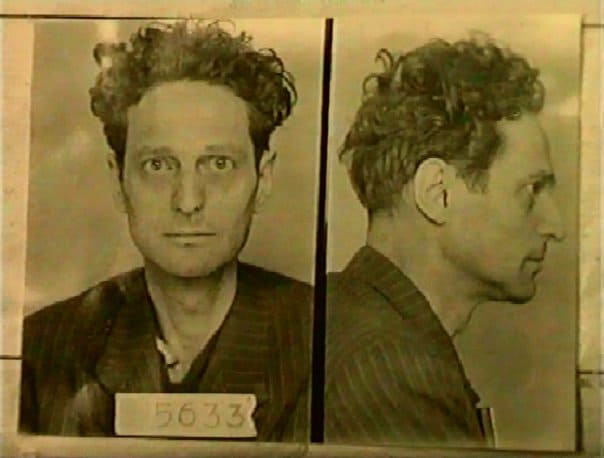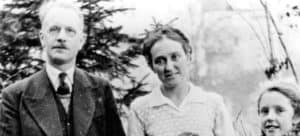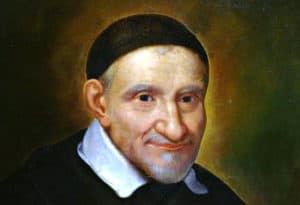 (1909-2001)
(1909-2001)
Born into Judaism, sidetracked briefly by atheism, and then converted to Christianity, Richard Wurmbrand, the “Iron Curtain St. Paul,” endured 14 years of harsh imprisonment and brutal torture for his faith under communist rule. But unlike Paul, he regained his freedom and was able to devote the next 35 years to helping other persecuted Christians.
Wurmbrand was the fourth child of a Jewish Romanian family. He grew up in bitter poverty, was orphaned in childhood, and by 14 had become, in his own words, “as convinced an atheist as any communist.” As a young man he was drawn to the left-wing politics that flourished in Bucharest in the 1930s. In 1936 he married Sabina Oster, also a Jew by birth.
Wurmbrand’s conversion took place two years after his marriage. By his own admission, he considered the very notion of God and Christ harmful to the human mind, but still there was yearning inside him. “I would have liked very much to know that a loving heart existed somewhere in the center of this universe,” he wrote in his early book, Tortured for Christ. “Since I had known few of the joys of childhood and youth, I longed that there should be a loving heart beating for me, too. I convinced myself that there was no God, but I was sad that such a God of love did not exist.”
Wurmbrand’s encounter with this God of love came when he was “irresistibly drawn” to a certain village in the Romanian mountains where an old carpenter had been praying to bring a Jew to Christ. Seeing that the new arrival was a Jew, the old carpenter courted him like a young man courting a beautiful girl. Wurmbrand had read the Bible before, but when given one by the carpenter he saw in it not mere words but “flames of love.” Weeping, he accepted Christ, and shortly afterward Sabina came to Christ as well.
During World War II, Richard and Sabina evangelized to the occupying German forces, preached in bomb shelters, and rescued scores of Jewish children from the ghettos. For these activities, they were arrested repeatedly. Wurmbrand’s connection with Russia began during this same time period. His own miraculous conversion had given him an intense sorrow for a people raised from childhood in atheism, and during the war he had an opportunity to minister to Russian soldiers held in Romanian prisons. Seeing men who had lost the ability to think for themselves, Wurmbrand vowed to dedicate his life to such men, “to give them back their personalities and to give them faith in God and Christ.”
The ongoing legacy of Richard Wurmbrand: Founded in 1967 by Pastor Wurmbrand, The Voice of the Martyrs is a non-profit, inter-denominational Christian organization dedicated to assisting the church’s persecuted family worldwide. It continues in this mission around the world today, in order to “remember those in prison as if you were together with them in prison, and those who are mistreated as if you yourselves were suffering” (Heb. 13:3).
Nine months before the end of the war in Europe, Wurmbrand got all the potential converts he could hope for when 1 million Russian troops marched into Romania. The communists seized control of the government, and a nightmare of oppression and capitulation began. The Russian occupiers convened a congress of religious bodies, attended by over 4,000 ministers, priests, and rabbis. Joseph Stalin was named honorary president of the convocation, and one by one the religious leaders swore their allegiance to the new government. Sabina turned to her husband and said, “Richard, stand up and wash away this shame from the face of Christ!” Wurmbrand rose to his feet and told the delegates that their duty was to glorify God and Christ alone.
Over the next two years, Wurmbrand distributed 1 million Bibles to Russian troops and also smuggled Bibles into Russia. By now he was head of the Norwegian Lutheran Mission in Bucharest, a position which helped cover his underground activities. His time ran out on February 29, 1948, when the secret police kidnapped him and threw him into prison with the designation “Prisoner Number 1.” He was held there for over eight years and subjected to horrific torture. In a general amnesty brought about by the Khrushchev-Eisenhower “thaw,” Wurmbrand was released in 1956. Although warned never to preach again, he soon resumed his underground work.
In 1959 he was rearrested, this time sentenced to 25 years. Among the tortures he endured were being placed in a wooden box with nails driven through the sides and repeated imprisonment in a “refrigerator cell,” where he would be frozen to the point of death, thawed out, and then frozen again. In 1964 Wurmbrand was released and then ransomed for $10,000 so that he could leave Romania with his family.
The following year he appeared before a US Senate subcommittee, at one point stripping to the waist to show 18 deep torture wounds. In 1967 the Wurmbrands began a ministry to the persecuted church in communist countries. Called the Voice of the Martyrs, the organization was established in 80 restricted countries by the mid-’80s.
He died February 17, 2001, active in his ministry to the end.
~ Leslie Hammond


